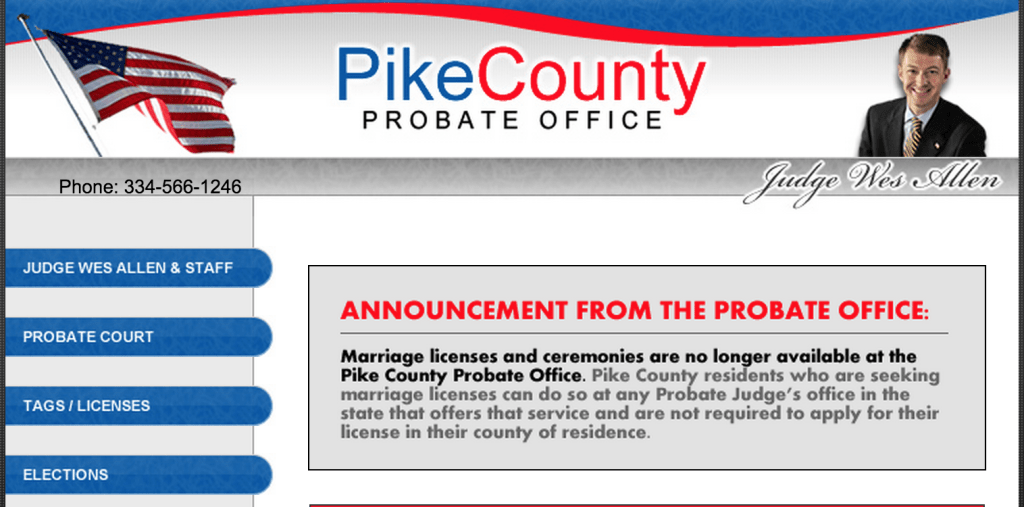Confusion – and computers – delaying implementation of gay marriage ruling across the South
Published 10:30 am Saturday, June 27, 2015

- Citing a section of state code—and their Christian beliefs—probate judges in two Alabama counties have simply stopped issuing marriage licenses in response to Friday's Supreme Court ruling.
In areas of the country where reaction to Friday’s Supreme Court ruling legalizing gay marriage was less than enthusiastic, confusion over implementation of the new law, and even technical difficulty, is providing its opponents with at least a momentary opportunity for resistance.
Mississippi officials claim the legal limbo stemming from a lower court’s 2014 ruling on the state’s gay marriage ban currently prohibits them from issuing licenses to same-sex couples.
Citing a section of state code—and their Christian beliefs—probate judges in two Alabama counties have simply stopped issuing marriage licenses altogether.
Calling the Supreme Court’s decision a “federal government intrusion into what should be a state issue,” Louisiana Attorney General James D. “Buddy” Caldwell (R) says the ruling technically doesn’t specify that his state has to comply with it.
One obstacle delaying the issuance of at least some marriage licenses to same-sex couples in neighboring Texas, even in the Lone Star State’s more liberal counties?
Computers.
“Bexar, Travis and Dallas [counties] are issuing if you cannot wait for our software changes,” reads a sign inside the Williamson County clerk’s office, just north of proudly progressive Austin.
Currently, the software the county uses to process marriage licenses only provides an option for a man and a woman to file for marriage.
A similar issue exists in Harris County, which includes Houston, the state’s largest city.
“We were told if we use the wrong form it will be null and void,” a deputy clerk told the Houston Chronicle.
The county’s attorney eventually ordered the clerk’s office to overlook the form’s syntax and begin issuing licenses to anyone who applies.
However, according to Jeane Brunson, the County Clerk in Parker County, for the time being that’s technically still illegal.
Citing the State of Texas’ Family Code, which requires clerks to use only applications prescribed by the Bureau of Vital Statistics, Brunson’s office had denied marriage licenses to at least five same-sex couples by lunchtime Friday.
“To alter the old form would be in violation of the law,” Brunson told the Weatherford Democrat. “Therefore, my call to the Department of State Health Services said that they were consulting with the Attorney General’s Office and they would notify all county clerks as soon they had been given information as to how to proceed.”
Brunson also said she is also waiting on a legal opinion from the Texas Attorney General’s Office.
“I’m not going to break the law for anyone.”





